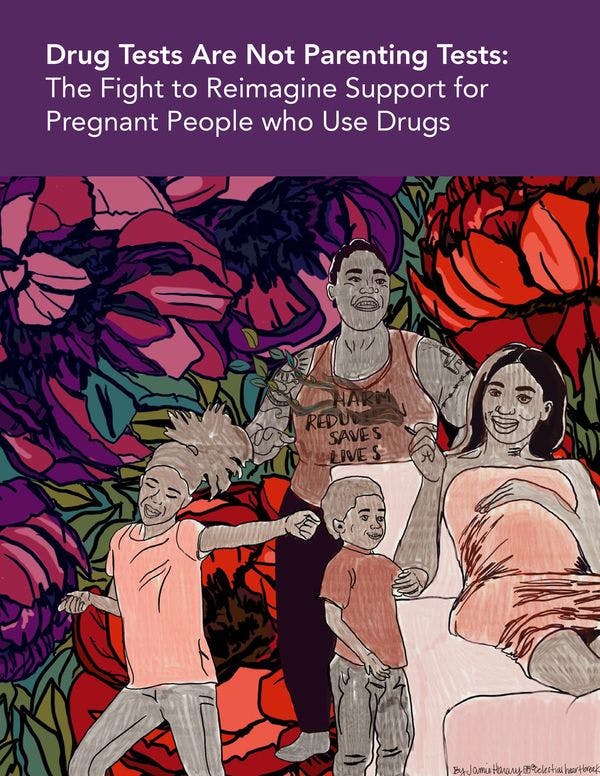Heike Mintel - Unsplash
Drug tests are not parenting tests: The fight to reimagine support for pregnant people who use drugs
It is a universal truth that parents love and care for their children and want to
do what is best for them. It should go without saying that this includes Black,
Brown, Indigenous, and low-income parents. However, every day, Black, Brown, Indigenous and low-income pregnant and parenting people are separated from their children or threatened with family separation based solely on accusations of drug use. These disruptions almost always begin with a report to Child Protective Services (CPS), hereafter referred to as the family regulation system (FRS) or family policing system.
Reports to FRS are often made by people who bear the responsibility to support families, with little to no acknowledgement on how these reports harm families and are connected to decades of social control. In the labor and delivery context, medical providers often call FRS after they have drug tested a new parent and their newborn without consent. This routine practice of “test and report” normalizes the violation of pregnant and postpartum people’s bodily autonomy as well as that of their newborns by testing their bodily fluids without their consent or knowledge. Worse yet, these test results are often used to impose surveillance and separation on families.
Many people confuse reports to FRS with support. However, communities
impacted by reporting know better. The report starts a chain of events that
results in increased family surveillance; beginning with invasive home visits and meetings with FRS caseworkers, court dates, and mandatory “services” such as observed urine drug tests and psychological evaluations to which caseworkers, judges, and attorneys are given access. During FRS investigations, FRS agents demand compliance with a list of requirements to prove parental “fitness.” When these stringent requirements are not met, and often even when they are, children are removed from their homes and placed in the care of extended family or strangers. What’s worse is that because FRS cases are considered civil actions, families are not afforded the admittedly lacking but still more substantial protections available in criminal cases, leaving their fates wholly in the hands of individual judges and case workers. This means that the allegedly “benign” drug test and subsequent reporting, can lead to a stressful investigation and potentially unchecked judicial proceedings with the power to permanently dissolve families.
